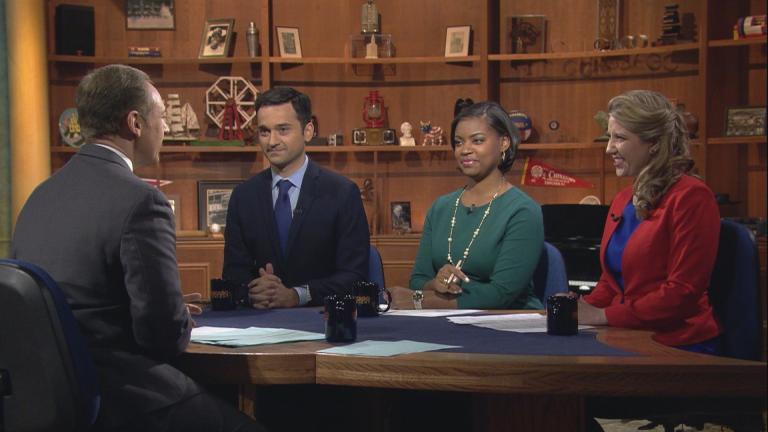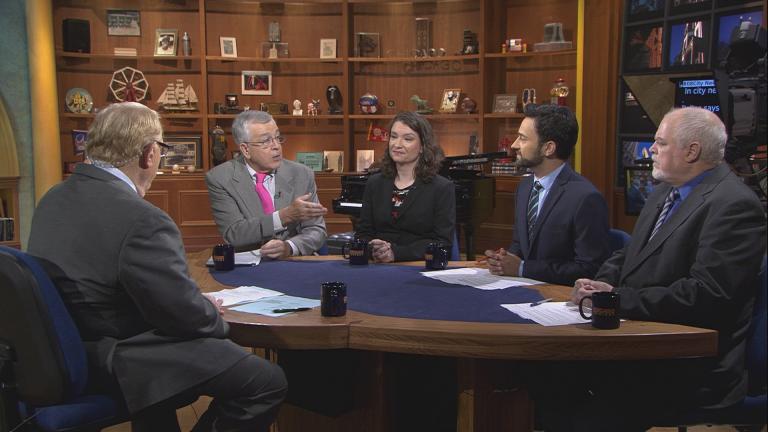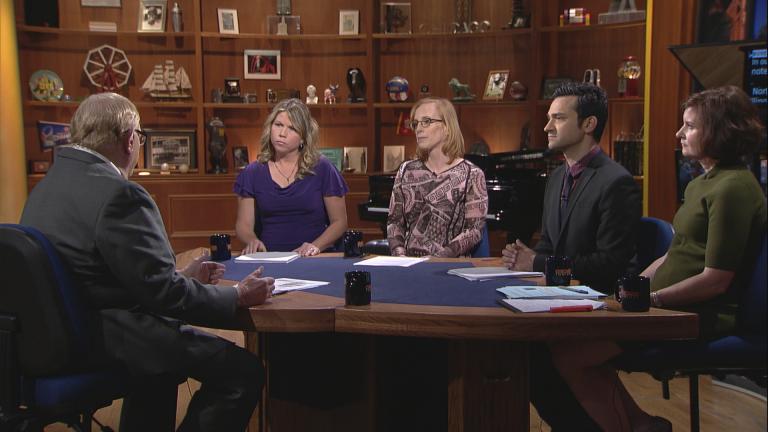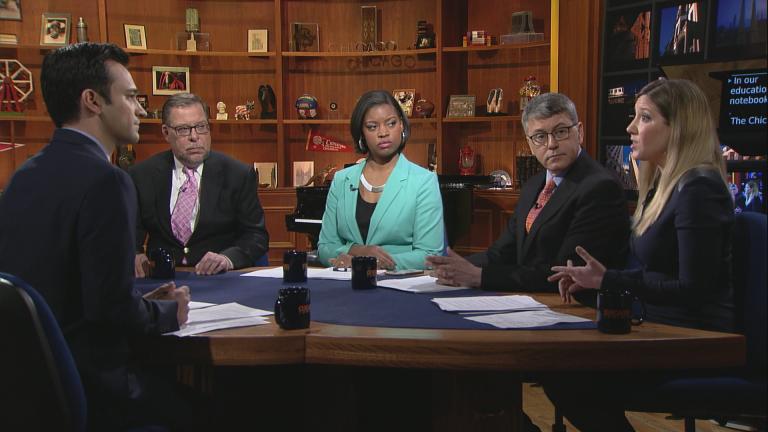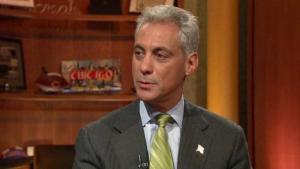 Chicago, according to some observers, is on the verge of a fiscal free fall. That's thanks to recent downgrades of the city's credit rating that has left it on the hook for potentially hundreds of millions of dollars owed to creditors. Today, the mayor outlined what he says is a blueprint back to long-term solvency.
Chicago, according to some observers, is on the verge of a fiscal free fall. That's thanks to recent downgrades of the city's credit rating that has left it on the hook for potentially hundreds of millions of dollars owed to creditors. Today, the mayor outlined what he says is a blueprint back to long-term solvency.
It’s going to get worse before it gets better. Under this plan taxpayers will have to put more money down upfront to save money going forward.
But Mayor Rahm Emanuel acknowledged in a speech before the Civic Federation that Chicago is on the brink. With a credit rating two levels above junk status, there are fewer and fewer places to turn to borrow money.
“Bills rack up, the high interest rates compound the debt problem; this goes on year after year until credit cards max out,” Emanuel said. “This is where the city is today. Our credit card has maxed out and we must adopt a different approach.”
That approach includes:
- Ending “Scoop and Toss,” the process of scooping up short-term debt and pushing the payments into the future with longer term debt
- Ending risky interest rate swap deals that have gone sour because the city essentially lost the bet that interest rates would rise, and made worse by its beleaguered credit rating
- Converting $900 million worth of variable rate debt to safer fixed rate debt
- Paying legal settlements out of the budget instead of using debt
- Increasing city reserves
The problem: the swaps represent $2.67 billion in debt, according to Reuters, and the city has pegged the termination cost at $200 million right away.
“Each of these five steps will require fundamental changes in how we spend money in our budget and where we spend it,” he said. “But they are essential steps on building on the progress we’ve achieved in the last four years.”
The Civic Federation, which is one of the foremost watchdogs of public finances, reacted positively to the mayor’s remarks, saying it's either this or watch city finances implode.
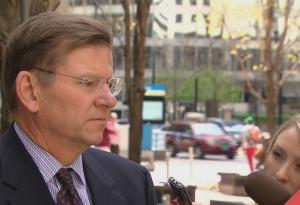 But, according to Laurence Msall, tax hikes are an inevitable part of the solution.
But, according to Laurence Msall, tax hikes are an inevitable part of the solution.
“There is no way that you can look at the city’s financial situation without knowing it’ll take more revenue,” Msall said. “The question is how much more taxes will the citizens have to pay.”
So much of the city’s beleaguered credit rating is driven by its massive public pension debt. The primary problem is the police, fire, and teacher pensions which are all on the brink of insolvency.
There is a $550 million mandatory payment owed to police and fire pensions this year alone. The mayor offered no specifics other than to say talks on a compromise are ongoing and that any solution will require pain on both the part of employees and taxpayers. As it relates to teachers – CPS faces a billion dollar deficit driven mostly by its pension obligations – the mayor says he is pushing Springfield to absorb Chicago teacher pensions into the statewide pension system.
Msall agreed, saying Chicago taxpayers unfairly pay both its own teacher pensions and downstate and suburban teacher pensions.
“It doesn’t make sense for the city taxpayers to contribute to state sales and income tax that funds downstate teachers but not Chicago Public Schools’ pension system,” Msall said. “There’s a great public policy reason to consolidate the Chicago teachers' pension fund into the state teachers retirement system.”
Gov. Bruce Rauner has adamantly opposed the idea of absorbing Chicago teacher pension costs. A spokesman in House Speaker Mike Madigan’s office said the speaker was open to the idea and that it would be part of talks on any pension legislation going forward. But he says the speaker more fervently believes in the idea of shifting suburban and downstate teacher pension costs onto local districts.
There are other extraneous factors that could determine Chicago’s financial situation. The Illinois Supreme Court has yet to rule on whether or not to uphold statewide pension reform, which could affect Chicago’s efforts to reform its city pensions systems. Further reform that the mayor is looking for would require legislative action from the governor and general assembly.

